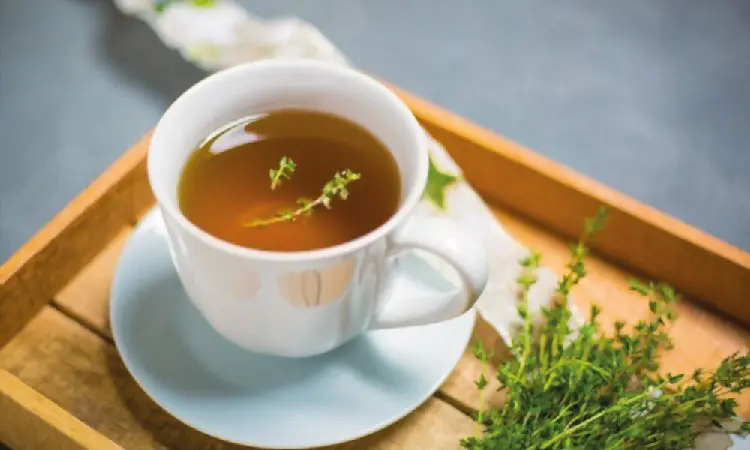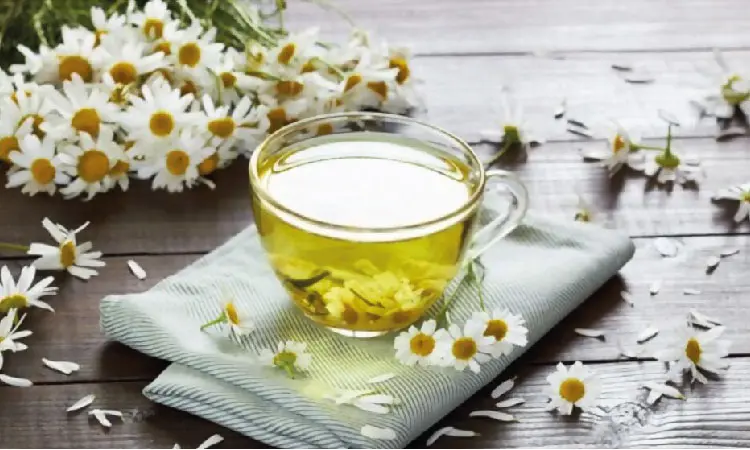Making and drinking tea is a tradition that dates back thousands of years. And that too for good reason. Tea contains polyphenols, which protect the heart, antioxidants, which may lower the risk of cancer, and other minerals, which help the immune system. During pregnancy, the benefits of tea may increase: a soothing hot drink may help you get through labor or morning sickness. Several varieties of tea are safe to drink while pregnant, but others should be avoided. Some teas can even cause miscarriage during pregnancy. Read on to find out which teas to avoid during pregnancy.
Drinking Herbal Tea During Pregnancy
During pregnancy, it’s best to avoid caffeine as much as possible, therefore, herbal tea is a great option. The diuretic effect of caffeinated beverages decreases nutrition absorption and taxes the adrenal glands. In contrast, herbal teas help you stay hydrated while also giving you a healthy dose of antioxidants. Vitamin C, which is abundant in herbal teas, is useful for controlling nervous tension. Certain herbal teas can help alleviate pregnancy nausea and vomiting, as well as speed up labor.
Related Reading: Energy Drinks During Pregnancy – Are They Safe?
Some Tips To Choose Tea During Pregnancy
Tea is a magical concoction, but like all things magical, it has its share of drawbacks. During pregnancy, every ailment that normally occurs in the body becomes more pronounced. The answer to the question, “Can tea cause a miscarriage?” will be “sometimes yes.”
Thus, choosing the right tea during pregnancy is critical. Here are some suggestions for selecting the best tea for pregnancy:
- Caffeine-containing tea should be avoided
- Choose a tea with high iron content. Iron is essential for pregnant women because it aids in the prevention of anemia
- Certain teas may be contaminated with high levels of lead
- Select an organic tea. This ensures that you are receiving high-quality herbs
- Look for a tea with ginger in it. Ginger can help with nausea and vomiting, which are common during pregnancy
- Tea made with old leaves should be avoided by pregnant women because it is more likely to be contaminated
- It is also critical to select tea brands with low lead levels
10 Teas That Are Best Avoided During Pregnancy
Caffeine can cross the placenta, so it’s best to cut back on your consumption while you’re expecting a child. According to research, pregnant women who consume more caffeine than is recommended are more likely to have babies with low birth weights1.
Also, children whose moms consumed more than 200 mg of caffeine daily had a twofold increased risk of poor cognitive development and a low IQ (intellectual quotient) at age 5.5 years compared to those whose mothers consumed less than 100 mg of caffeine daily2.
Caffeine levels in herbal tea change. The caffeine content is influenced by the quantity of leaf used and the method of preparation. Caffeine levels rise during pregnancy, so avoid certain teas. You should steer clear of the following drinks while carrying a child.
Calculate Due Date With LMP
Caffeinated or herbal teas with questionable additives fall into this category. Among the teas in this category are:
1. Licorice tea

Tea made from licorice root is highly recommended for those suffering from a cough or sore throat. The coating effect of the tea’s compounds on the throat can help soothe an itchy, scratchy throat. However, licorice root tea may not be safe for women who are pregnant. The use of licorice during pregnancy has been linked to health issues in babies.
A study in the American Journal of Epidemiology found that children who were overexposed to glucocorticoids, which are natural parts of licorice root, were more likely to have cognitive and mental health problems3. According to additional research, excessive licorice root consumption may result in premature births.
2. Red raspberry leaf tea
Tea made from red raspberry leaves has been used medicinally for centuries for contraction stimulation, to speed up labor, and to aid in postpartum recovery. Some research shows it can help with uterine contractions, shorten the overall length of labor, and reduce complications during childbirth.
Nevertheless, considering the little study that has been done on whether or not it is truly effective, and the fact that experts are unable to conclusively indicate whether or not it is safe, it may be better to avoid taking raspberry leaf tea while pregnant.
Red raspberry leaf teas can cause miscarriage in early pregnancy because of their ability to shorten labor time by increasing uterine contractions. Avoid red raspberry leaf tea during the first trimester, but pregnant women can use it to aid in labor during the third trimester.
Related Reading: 9 Pain Management Techniques During Labor
3. Sage tea
Sage is not 100% safe for pregnant women to consume, despite its positive effects on health. Sage may be used safely during pregnancy if used in cooking but should be avoided in concentrated forms such as teas. The active ingredient in essential oils from plants like sage is called thujone4.
Due to the presence of essential oils that are toxic to embryos and may lead to miscarriage if used during pregnancy. If a pregnant woman consumes thujone, she may experience a miscarriage5.
4. Thyme tea

Herbal thyme tea is prepared by steeping dried thyme leaves in hot water. It has a mild taste and may be consumed either hot or cold. Little levels of thyme, such as those present in food, are considered safe during pregnancy, but high amounts should be avoided. Thyme has strong diuretic and anthelmintic properties6. Drinking thyme tea sometimes is generally OK, but doing so regularly has some risks.
Thyme has esoteric oils in it that, when eaten in large amounts, can irritate the skin and mucus, raise the risk of uterine contractions, and even end a pregnancy7. Thyme, even in little amounts, should be avoided between 13 and 16 weeks of pregnancy if you want to avoid a miscarriage.
5. Fenugreek tea
Fenugreek has a uniquely therapeutic and nutritional profile and is one of the oldest medicinal herbs used today. Fenugreek is not safe for use during pregnancy in amounts greater than those found in food; its use has been linked to increased risks of birth defects8.
Fenugreek has been used for centuries as a natural labor aid9. Fenugreek may even be used to speed up a protracted labor process. It can be helpful if your due date is approaching and you take fenugreek tea to induce labor. However, before the 37th week of your pregnancy, it’s best to avoid drinking fenugreek tea daily.
Related Reading: When To Start Eating Methi Ladoos During Pregnancy (Fenugreek During Pregnancy)
6. Vervain tea
Vervain is a famous herbal cure used to treat a variety of ailments. People have it in the form of tea, cream, tincture, or, powder.
According to animal studies, consuming vervain extract during pregnancy may result in insufficient weight gain as well as fetal malformations such as decreased bone ossification, also known as bone hardening10. Thus, women who are pregnant should steer clear of any products containing vervain, including vervain tea.
7. Fennel tea
Estragole, which is found in fennel, might not be for any person when they’re exposed to it in large quantities11. Estragole is a substance that pregnant women should avoid because it can cause uterine contractions. Fennel is a potent estrogenic, which means that its actions are similar to those of the hormone estrogen. This might help reduce some of the symptoms of menopause, but expecting mothers shouldn’t take it12.
8. Chamomile tea

Drinking chamomile tea during pregnancy may not be a good idea due to the risk of contractions, which might result in a miscarriage or an early delivery13. There may be a safe threshold for drinking chamomile tea while pregnant, but it is not known at this time.
The precise amount of chamomile required to induce labor is unknown since there are no standards for its usage or dosage. There isn’t enough information right now to say that pregnant women should drink chamomile tea. If you’re expecting, it’s recommended that you wait until after the baby is born to start drinking chamomile tea.
9. Parsley tea
Parsley is widely used as a seasoning in many different cuisines. Despite its benign side effects and several potential advantages, it is also capable of stimulating the uterus and triggering contractions. Excessive drinking of parsley tea has been linked to miscarriage and may hinder fetal growth14.
Parsley oil was traditionally used to induce abortions and miscarriages due to its apioli and myristicini content15. If you drink green teas with parsley extract and parsley seeds regularly, you may get more apiol and myristicin. Since it crosses the placenta easily, myristicin may affect your unborn child. Pregnant women and their unborn children should avoid exposure to large amounts of parsley oils.
Related Reading: 6 Spices To Eat And 6 Spices To Avoid During Pregnancy
Research is still going on to find out the exact dosage of parsley that you can safely consume while you are pregnant, and there are no conclusive results yet. Thus, pregnant women should stay away from drinking parsley tea16.
10. Motherwort tea
Motherwort tea during pregnancy is probably not a good idea. Motherwort has been linked to uterine stimulation and possible miscarriage. According to research, the motherwort component leonine may have uterine-altering properties17. In one study, researchers discovered that leonurine caused uterine contractions at low doses but suppressed them at higher ones18.
Motherwort has been shown to have contradictory effects, including the induction of labor and menstruation as well as the subsequent relaxation of the uterus (as it is traditionally said to do). But until well-designed human tests are done, no one knows if these traditional uses of motherwort are safe and effective or not. Thus, abstain from drinking motherwort tea during pregnancy.
Conclusion

Pregnancy brings many new considerations. As we begin each day with a cup of tea, the safety of tea is undoubtedly among the most important factors to consider. Tea is generally safe to consume while pregnant. Even if you are very careful about your pregnancy, tea is something many women don’t wish to avoid during this phase. Green tea, black tea, and white tea are all safe for pregnant women to consume in moderation.
The amount of caffeine in these teas isn’t too high, and they have a lot of health benefits. There are decaffeinated versions of these teas for pregnant women who want to limit how much caffeine they drink. However, pregnant women should stay away from the potentially harmful teas mentioned in this blog. Attempting any sort of experimentation while pregnant is not a good idea.

